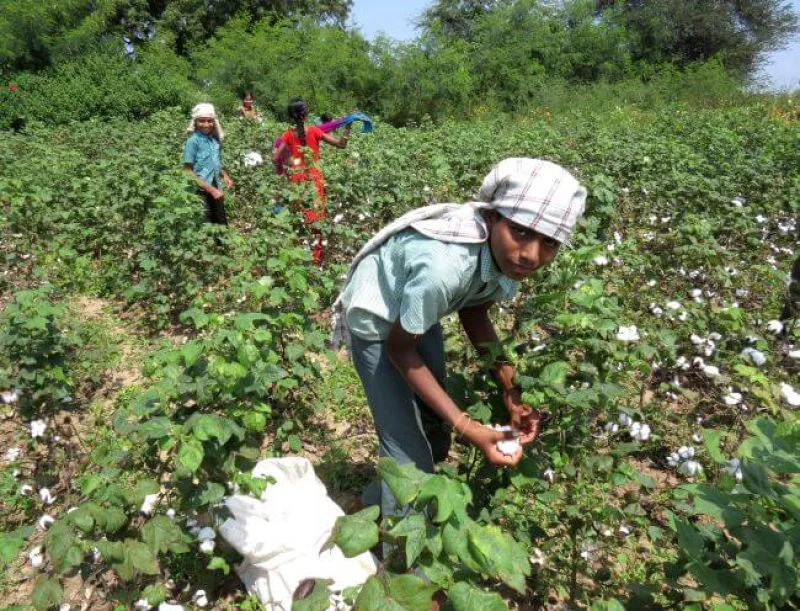Viewpoint: Organic mirage: The poor are paying the price for the backlash against agrochemicals and crop biotechnology
Viewpoint: Organic mirage: The poor are paying the price for the backlash against agrochemicals and crop biotechnology


Thanks to the Green Revolution—a period of technology transfer initiatives that saw significantly increased crop yields and agricultural production—it became easier to feed more people with less land. The Green Revolution involved adopting newer methods of cultivation, including mechanization, modern crop varieties, and agrochemicals, including fertilizers, irrigation, pesticides, and herbicides.
Before the Green Revolution, hunger was common. If India, for example, had stuck to its traditional farming methods, millions of people would have starved, particularly children. Once the subcontinent employed modern agricultural techniques between 1965 and 1970, wheat yields nearly doubled in India and Pakistan. That has required only 30 percent more land.
Today, there is a backlash against modern farming methods, mostly from extreme environmentalists who oppose agrochemicals and gene-editing technologies.
…
Agriculture is all about trade-offs. Although they have some negative environmental impacts, agrochemicals help farmers grow more food on less land, which is critical for developing countries that rely on agriculture to combat starvation and for export income.
High-yield output also correlates with positive environmental outcomes by reducing land used for agriculture.
This is an excerpt. Read the original post here

 | Videos | More... |

Video: Nuclear energy will destroy us? Global warming is an existential threat? Chemicals are massacring bees? Donate to the Green Industrial Complex!
 | Bees & Pollinators | More... |

GLP podcast: Science journalism is a mess. Here’s how to fix it

Mosquito massacre: Can we safely tackle malaria with a CRISPR gene drive?

Are we facing an ‘Insect Apocalypse’ caused by ‘intensive, industrial’ farming and agricultural chemicals? The media say yes; Science says ‘no’
 | Infographics | More... |

Infographic: Global regulatory and health research agencies on whether glyphosate causes cancer
 | GMO FAQs | More... |

Why is there controversy over GMO foods but not GMO drugs?

How are GMOs labeled around the world?

How does genetic engineering differ from conventional breeding?
 | GLP Profiles | More... |

Alex Jones: Right-wing conspiracy theorist stokes fear of GMOs, pesticides to sell ‘health supplements’




 Viewpoint — Fact checking MAHA mythmakers: How wellness influencers and RFK, Jr. undermine American science and health
Viewpoint — Fact checking MAHA mythmakers: How wellness influencers and RFK, Jr. undermine American science and health Viewpoint: Video — Big Solar is gobbling up productive agricultural land and hurting farmers yet providing little energy or sustainabilty gains
Viewpoint: Video — Big Solar is gobbling up productive agricultural land and hurting farmers yet providing little energy or sustainabilty gains Fighting deforestation with CO2: Biotechnology breakthrough creates sustainable palm oil alternative for cosmetics
Fighting deforestation with CO2: Biotechnology breakthrough creates sustainable palm oil alternative for cosmetics Trust issues: What happens when therapists use ChatGPT?
Trust issues: What happens when therapists use ChatGPT? 30-year-old tomato line shows genetic resistance to devastating virus
30-year-old tomato line shows genetic resistance to devastating virus California, Washington, Oregon forge immunization alliance to safeguard vaccine access against federal undermining
California, Washington, Oregon forge immunization alliance to safeguard vaccine access against federal undermining The free-range chicken dilemma: Better for birds, but with substantial costs
The free-range chicken dilemma: Better for birds, but with substantial costs ‘You have to treat the brain first’: Rethinking chronic pain with Sanjay Gupta
‘You have to treat the brain first’: Rethinking chronic pain with Sanjay Gupta
